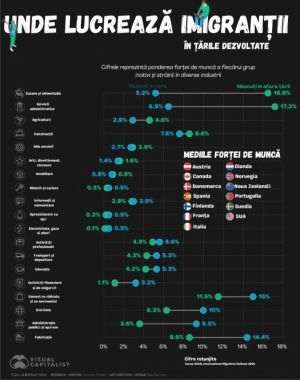Prime Minister Marcel Ciolacu declared yesterday, after the meeting with Deputy Prime Minister Tanczos Barna, Minister of Finance, that the budget for the current year will be built with caution, so as to fall within a 7% deficit, according to the commitments made to the European Commission, the adoption by the Government of the respective draft law to take place at the end of this month, so that the normative act passes the Parliament in the first week of February.
Marcel Ciolacu also said: "Investments will remain a priority, especially those financed through the PNRR. At the same time, small and medium pensions will be indexed in September, if the budget allows it." The Head of Government added that maintaining a balanced budget is necessary for the country's continued economic development. He stressed the importance of fiscal measures that do not affect vulnerable consumers and the economy, categorically excluding an increase in VAT. "We cannot place an additional burden on all Romanians. Our efforts are focused on reducing inflation and maintaining macroeconomic stability," said Prime Minister Marcel Ciolacu.
Finance Minister Tanczos Barna detailed the budget's construction, emphasizing that revenues will be realistically estimated, without including amounts that are difficult to achieve. "A pro-European government must respect its commitments. Romania has committed to reducing the deficit progressively, reaching 3% by 2027. This implies rigorous control of spending and prioritization of investments," the Finance Minister said.
According to him, strategic investments will not be affected, and allocations for health, education and defense are assured. "The budget includes substantial funding for health and education, and Defense will receive at least 2% of GDP, according to the commitments made," Tanczos Barna said.
The minister also mentioned plans to reduce arrears and increase revenues through better tax collection. "We will bring in additional revenues of over 26 billion lei from ANAF, without increasing taxes. It is a concentrated effort to fit within the 7% deficit," he explained.
The two officials emphasized that investments will exceed 130 billion lei, with the possibility of approaching 140 billion lei. These funds will support infrastructure development, the implementation of the PNRR and other strategic projects.
Regarding the administration reform, Prime Minister Ciolacu announced the first measures to restructure the government apparatus, including the merger of some agencies and the reduction of the number of inefficient boards of directors. "Romania needs a structural reform, which we have undertaken and which we will carry out," he said.
Marcel Ciolacu and Tanczos Barna reiterated the government's commitment not to increase VAT and to maintain the flat tax rate in 2025. The prime minister explained that such a measure would negatively affect the purchasing power of the population and lead to an increase in inflation.
"We will come up with a tax reform that is predictable and does not impose sudden changes. Any change will have an implementation period of at least six months," Ciolacu said.
Minister Tanczos Barna highlighted the importance of solidarity in allocating resources to administrative-territorial units. "We will create a national solidarity fund to support small communes and ensure basic services for all citizens," he said.
Regarding the economy, the two officials expressed optimism, based on positive macroeconomic indicators, such as GDP growth and reduced inflation. "Romania has a robust and stable economy, and our objective is to maintain this trend," Tanczos Barna concluded.
Regarding economic development, Prime Minister Marcel Ciolacu said that the state will continue to provide state aid to companies in our country, but will propose that these be provided by the Ministry of Finance and that the total value of these aids rise to 2% of Gross Domestic Product in 2025.


























































